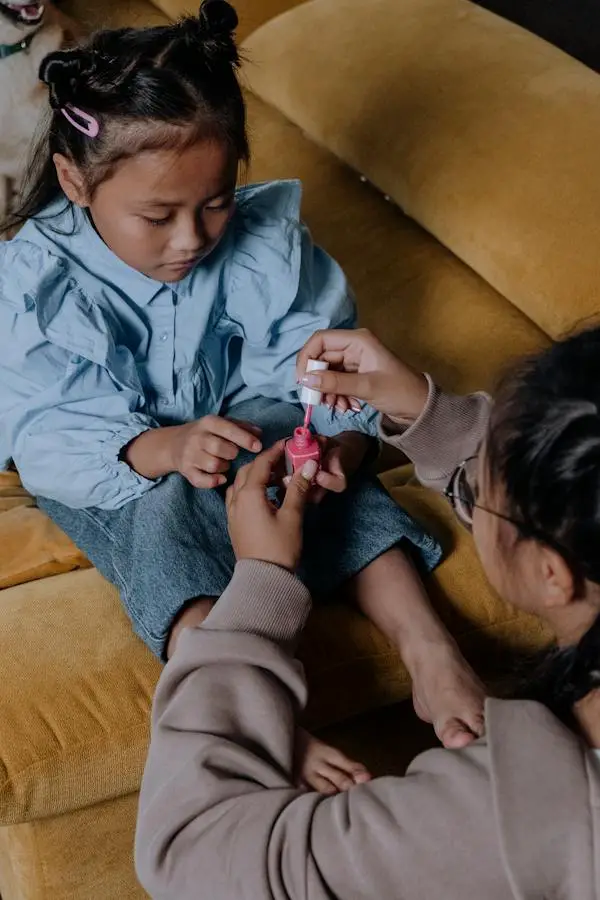
Mommy issues are a term used to describe the emotional and psychological effects of a difficult or strained relationship between a mother and her child.
This can manifest in various ways and can have a significant impact on a person’s mental health and relationships.
In this article, we will explore what mommy issues are, the importance of understanding them, signs of mommy issues, potential causes, and what to do if you have mommy issues.
What are Mommy Issues?
The term “mommy issues” is commonly associated with negative challenges that some women may face later in life due to the nature of their relationship with their mothers during childhood.
Although the term is frequently used to describe men with close ties to their mothers, it is important to recognize that women can also encounter difficulties.
These challenges, stemming from mommy issues, manifest differently for males and females but are undeniably impactful.
Whether the mother was lacking in affection or excessively critical, the consequences often extend into adulthood, influencing an individual’s sense of self-worth.
While “mommy issues” is not an official psychological diagnosis, it can be understood through psychological theories.
This is because a person’s mother is typically considered the most significant figure in a child’s life.
The dynamics of this primary relationship can shape an individual’s psychological and emotional well-being, contributing to challenges that persist into adulthood.

Importance of Understanding Mommy Issues
Recognizing and comprehending mommy issues holds significant importance as it enables individuals to acknowledge and confront the influence of their maternal relationships on their mental well-being and interpersonal connections.
This understanding serves as a pivotal step in breaking detrimental patterns of behavior that might be adversely affecting their lives.
Mental health impact
Understanding mommy issues allows individuals to grasp how their relationship with their mother can contribute to mental health challenges.
By recognizing these connections, individuals can take proactive steps to address emotional distress and seek appropriate support.
Relationship dynamics
Insight into mommy issues provides a lens through which individuals can analyze their relationship patterns.
This awareness helps in identifying areas of difficulty in forming and sustaining healthy connections with others.
Behavioral patterns
The recognition of mommy issues empowers individuals to break free from negative behavioral cycles.
By understanding the root causes of certain behaviors, individuals can work towards cultivating healthier responses in various aspects of their lives.
Personal growth
A profound understanding of mommy issues facilitates personal growth.
It serves as a catalyst for self-reflection and the development of coping mechanisms, fostering resilience and emotional well-being.
Breaking negative patterns
Mommy issues can perpetuate detrimental behavior, but understanding them provides an opportunity for change.
Armed with insights, individuals can actively work towards breaking negative patterns and cultivating more positive and fulfilling lifestyles.
Enhancing relationships
Knowledge about mommy issues equips individuals with the tools to enhance their relationships.
By addressing underlying emotional challenges, individuals can foster healthier connections with family, friends, and romantic partners.

Signs of Mommy Issues
Some signs of mommy issues include:
- Difficulty forming healthy relationships: Individuals with mommy issues may encounter challenges in establishing and maintaining positive, healthy connections with others.
- Low self-esteem: The emotional dynamics within the mother-child relationship can profoundly influence an individual’s perception of themselves.
- Trust Issues: This may manifest as difficulty relying on others and forming trusting bonds, affecting various aspects of personal and professional life.
- Anxiety and depression: Mommy issues can be linked to heightened levels of anxiety and depression.
- Codependency: Individuals with mommy issues may develop patterns of codependency, where their sense of self is overly reliant on others.
- People-pleasing behavior: A response to the challenges in the mother-child relationship might result in a tendency to engage in people-pleasing behavior.
- Disrespectful behavior towards women (in men): The challenges in the mother-son relationship may influence attitudes and interactions with women in adulthood.
What Causes Mommy Issues?
Mommy issues can stem from a range of causes, each contributing to the complexities of the mother-child relationship.
Understanding these causes is instrumental in addressing and managing the challenges associated with mommy issues.
Childhood trauma or abuse
Mommy issues can be rooted in experiences of childhood trauma or abuse.
Emotional or physical mistreatment during formative years can shape an individual’s perception of maternal figures, leading to long-lasting effects on their emotional well-being.
Neglect or abandonment
The absence of emotional support, neglect, or abandonment during childhood can create mommy issues.
Children require consistent care and nurturing, and the lack of these essential elements can influence attachment patterns and self-esteem in later life.
Overprotective or controlling behavior
Overbearing or controlling maternal behavior may contribute to mommy issues.
An excessively protective environment can hinder a child’s autonomy and independence, impacting their ability to form healthy relationships and make independent decisions.
Unresolved conflicts or resentments
Unresolved conflicts or resentments within the mother-child relationship can contribute to mommy issues.
Lingering negative emotions, whether on the part of the mother or the child, can influence the dynamics and shape the individual’s attitudes towards relationships.
Mental illness or addiction in the mother
The presence of mental illness or addiction in the mother can significantly impact the quality of the mother-child relationship.
A mother’s struggles with mental health or substance abuse can create an unstable and challenging environment for the child, influencing their emotional development.
Cultural or societal expectations of motherhood
Societal or cultural expectations of motherhood can also play a role in mommy issues.
Pressure to conform to certain standards or norms may contribute to feelings of inadequacy or frustration, especially if the mother feels constrained by external expectations.

What to Do if You Have Mommy Issues?
If you find yourself grappling with symptoms of mommy issues, there are constructive strategies to consider that can contribute to your well-being and personal growth:
Seek therapy
Engaging with a mental health professional can be instrumental in navigating and understanding the complexities of mommy issues.
A therapist provides a safe space to explore emotions, identify patterns, and develop healthy coping strategies.
Therapy offers valuable insights and tools to foster emotional resilience.
Practice self-care
Prioritize self-care activities that nurture your well-being.
Identify and engage in activities that bring you joy and relaxation.
Taking care of your physical and emotional needs is crucial in fostering a positive and supportive environment for personal growth.
Set boundaries
Learn the art of setting healthy boundaries in your relationships.
This involves recognizing and communicating your limits, ensuring that you prioritize your own needs and well-being.
Saying no when necessary is a crucial aspect of establishing boundaries that foster healthier connections.
Practice forgiveness
Work on cultivating forgiveness, both towards your mother and yourself.
Forgiveness is a process that allows you to release the emotional weight of past hurts, facilitating healing and growth.
It doesn’t negate past experiences but empowers you to move forward with greater emotional freedom.
Build healthy relationships
Surround yourself with supportive and positive individuals who respect your boundaries and encourage your personal growth.
Building healthy relationships outside the context of family can provide additional sources of support and contribute to a more fulfilling life.

Conclusion
Mommy issues can deeply affect your mental health and relationships, but there are effective strategies to manage them.
Seeking therapy, prioritizing self-care, establishing boundaries, practicing forgiveness, and fostering healthy relationships are key steps to break negative behavior patterns that might be impacting your life.
By incorporating these strategies, you can actively work towards improved well-being and more positive connections.
FAQs
With the help of therapy and self-care, it is possible to work through mommy issues and develop healthy coping strategies.
Yes, mommy issues can affect both men and women.
Unresolved mommy issues can contribute to patterns of behavior that are passed down through generations. However, with awareness and effort, these patterns can be broken.



